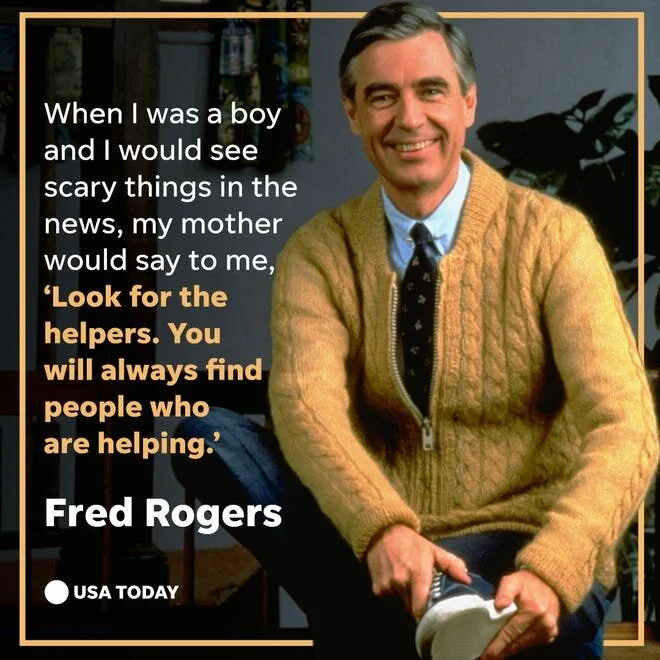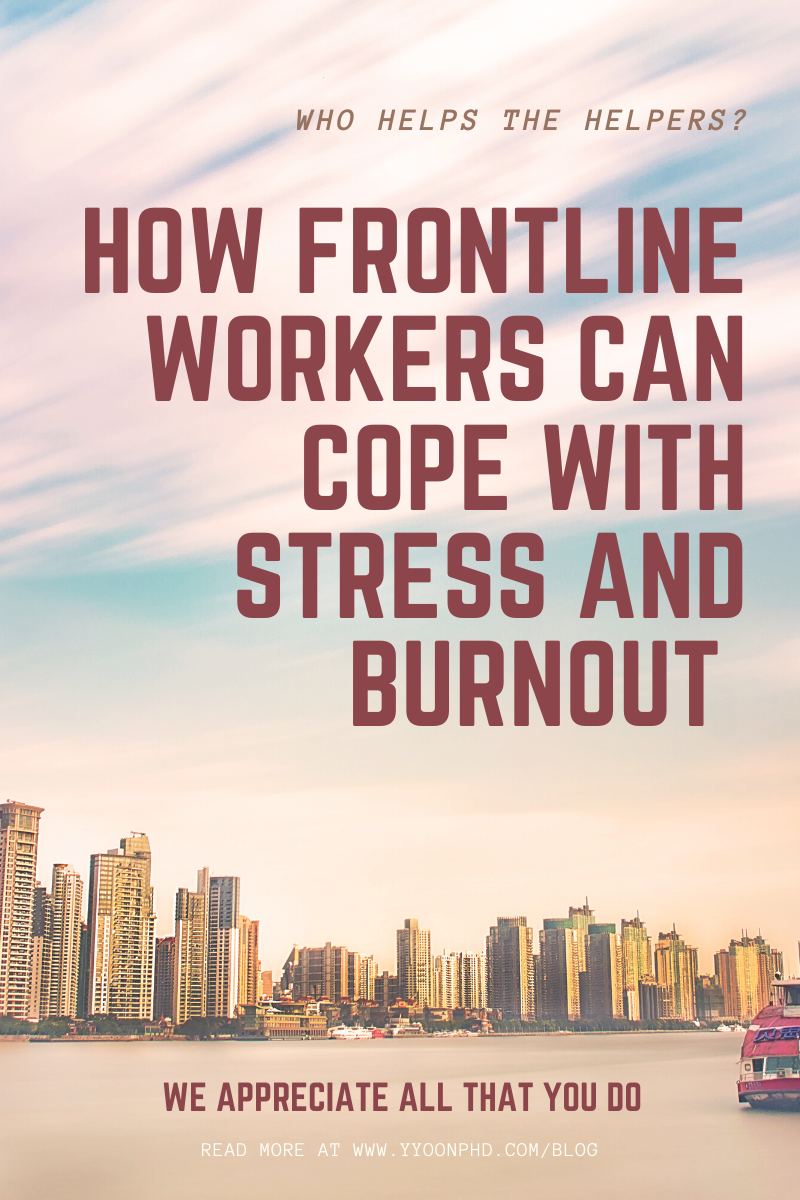Tips for the helpers who are on overdrive
What is happening to our frontline and essential workers?
During this period of the coronavirus pandemic, everyone is on overdrive trying to get their jobs done and manage responsibilities without having their usual resources at their disposal. But it goes without saying that for some individuals, also known as “frontline workers” or “essential workers”, they are working at max capacity, under-resourced, and are doing so without knowing when these conditions will let up. Over-working, being under-supported, and being without a sense of control of time and resources is a formula for burn out.
It pains me to acknowledge that these are the conditions under which so many frontline and essential workers are operating. I am shedding a harsh light on the dark painful reality of too many. But not to do so would be to turn a blind eye to what is real and would be a disregard of what is true for the frontline workers. They do not get the choice to turn a blind eye, they don’t get to choose what they’ve already seen and experienced and will continue to face.
Where do the helpers look?
When I was a boy and I would see scary things in the news, my mother would say to me, "Look for the helpers. You will always find people who are helping." To this day, especially in times of "disaster," I remember my mother's words and I am always comforted by realizing that there are still so many helpers – so many caring people in this world.
Fred Rogers
I love this quote. Fred Roger’s words of wisdom have more recently experienced a resurgence during times of hardship and challenge to give us hope and guidance.
But as I read this now, I wonder: Where do the helpers look? While we are all looking to the helpers to help us through these challenging times, who helps the helpers?
So, I want to offer some advice for the helpers, the caregivers, the people who give so much to me and to us. I hope these tips will help you sustain and survive this time. I also extend this to anyone who is undergoing the stressors of being a caregiver such as a parent, teacher, or caregiver to a family member or friend). All of this applies to you.
How Frontline Workers Can Cope with Stress and Burnout at www.yyoonphd.com/blog
Tips for How Frontline Workers and Caregivers Can Cope with Stress and Burnout
Name and tame the emotions or physical sensations you are feeling
To be able to manage a feeling, you need to be able to notice and name what it is. It helps you learn how to deal with it if you can identify what it is you are feeling. It sounds simple but it is very powerful and often overlooked.
Ask yourself, what am I feeling right now?
2. Share how you feel with someone you trust.
Talking to someone else about how you are feeling helps you on two accounts. First, this helps with the naming of what you are experiencing (covered in Tip 1).
Second, this helps build a sense of connection with someone and helps you feel less alone. Someone you trust will listen, provide emotional support, and if you need it, some advice for how to move forward. This person can be in the form of a friend, a family member, a mental health professional like a therapist.
3. Adopt a form of a gratitude practice
Name one thing you are thankful for today. This helps you re-experiencing the spark of joy associated with the thing you are grateful for. This also sheds light on what you do have. When times are bleak and stressful, we feel worse when we get stuck on thoughts of what we do not have or wish we had.
Right now, I am grateful for...
4. Accept the help that is being extended to you by others
You can’t pour from an empty cup.
Take care of yourself first.
This may be hard for you if you tend to always play the role of caregiver. You may be used to being the one who gives. You may not be one who likes to take, be the center of attention, or to ask for help. But right now, you are overwhelmed. You cannot help effectively if you are running on empty.
So I challenge you to open your hands and receive what is extended to you by those who care because you deserve and need the support.
Practice at least one silent minute of deep breathing as a part of your daily routine
I only ask for one minute because I am a pragmatist and I realize that asking you to engage in more of something may be unrealistic or extra daunting.
We all have one minute. You have one minute as you go from one patient to another or move from one delivery to another. During this minute, let it be a mindful one where you pay attention to your breath and how your body feels.
And here is a little bonus exercise to include in this minute (or more if you would like): Impart a kind wish to yourself and to others.
For example: “May I be healthy” “May all beings be safe” “May my loved ones know I love them” “May I feel some ease right now”.
This is a very truncated adapted version of the meditation practice better known as the Loving-Kindness or “Metta” meditation. To practice, try here with Sharon Salzberg: https://insighttimer.com/sharonsalzberg/guided-meditations/lovingkindness-meditation





